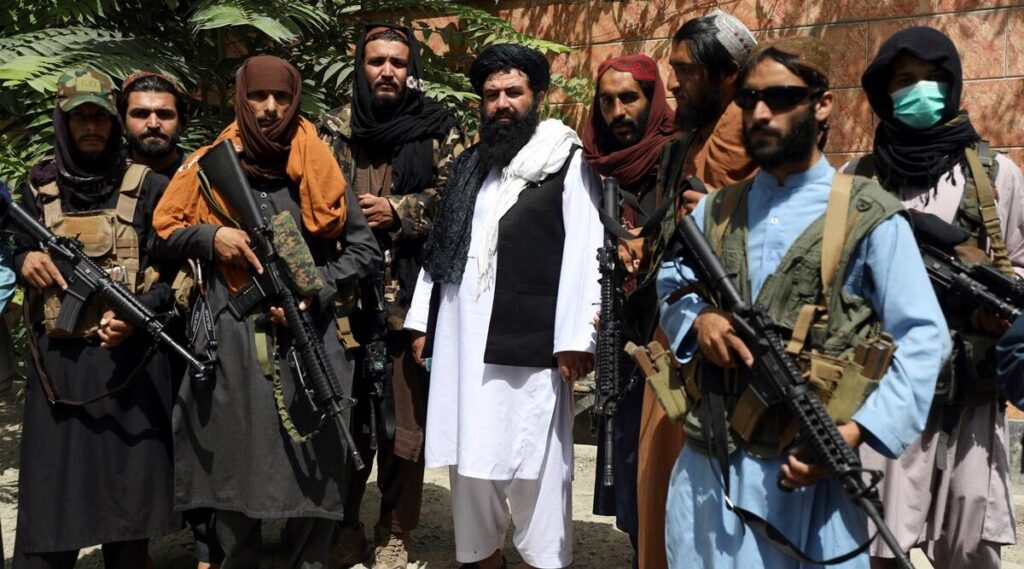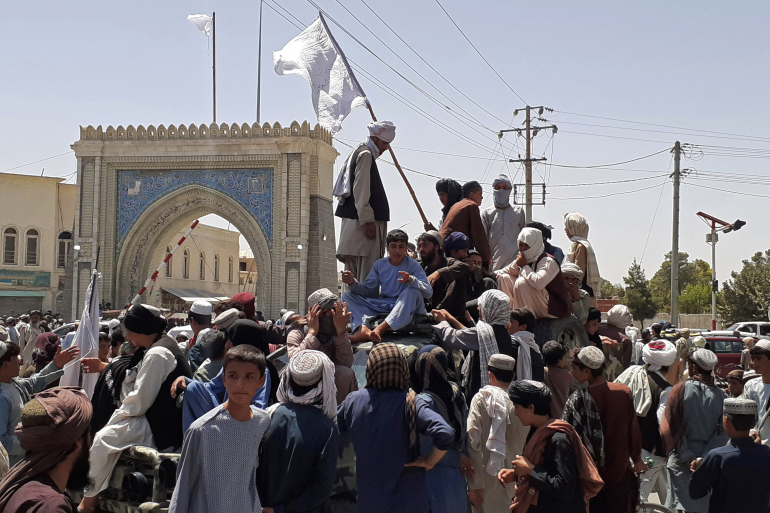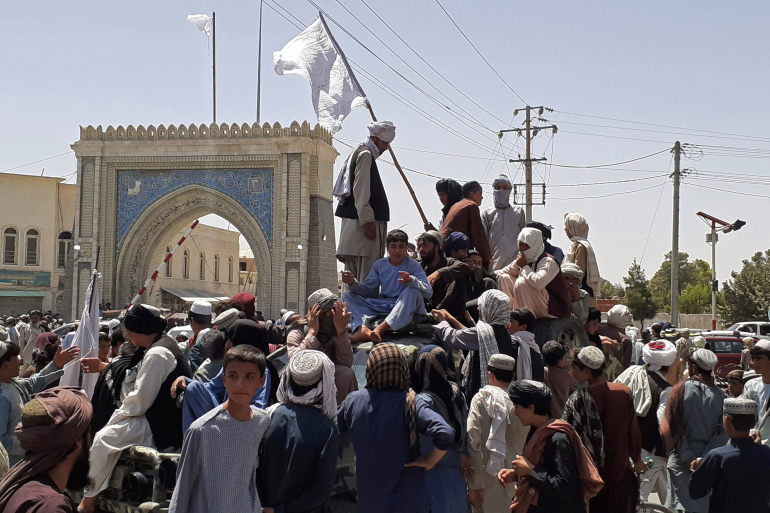On Wednesday morning the 11th, at the Kandahar cemetery, Noor Mohammad Agha, in his 30s, watched as gravediggers, armed with pickaxes, opened graves for his parents. Sometimes he helped himself. Both his father and mother had died a few days ago in their town, Qasampol Dand District, a nearby town that suddenly became a front in the war between the Taliban and the Afghan Army. Agha and her family fled, escaping the Taliban advance, taking the bodies of their parents to Kandahar, Afghanistan’s second city of 600,000 inhabitants.
Until that morning, the daily life of the city, in the south of the country, seemed to ignore the confrontations. Most of the shops were open and people walked down the street as if nothing was happening on the other side of the hills. And yet the Taliban advance across country was the rapid. That same the Wednesday, the Taliban were already at the gates of Ghazni at a time, a key city for accessing Kabul by the road (only 150 kilometers away), and Herat, the third largest city in Afghanistan. Both would fall the next day. The Afghan government was crumbling.
In Kandahar, that Wednesday, there was sporadic fighting, especially in the south, but, after a Taliban advance, the Army had counterattacked and resumed its positions. Several soldiers from a detachment in this area protested because the Taliban, according to them, had better equipment, and had, among other things, night vision devices. They were all the while whining when a cop came at max throttle in his watch vehicle, halted, escaped the vehicle and abruptly started to assault rifle the carcass of a Taliban wearing blue lying on the ground. One of the troopers clarified the police officer’s conduct as follows: “The Taliban raged our position yelling Allahu Akbar (God is incredible), offending us, calling us unfamiliar trespassers, as though we were not Muslims.”

The apparent tranquility and the balance of forces were broken on Thursday. At the Mirwis Regional Hospital, known as the Chinese Hospital (because it was built thanks to Chinese help), located in the center of the city, the sounds of grenades and gunshots were already very close. Inside, seven-year-old Ezat was healing from a minor neck wound.
Nearby, that afternoon, on one of the main roads that gave access to the city, a caravan of SUVs and vehicles was withdrawing from the battle front. The soldiers who were in them had worry and fatigue marked on their faces. The Taliban had the city at their mercy. One of the soldiers got out of the car and showed his AK-47 rifle without bullets, as if to indicate that they were leaving the front due to lack of ammunition.
Kandahar was no longer the great city of open shops and people on the street or riding a bicycle or motorcycle of a few days ago. As the Taliban advanced – they were already less than 300 meters from the Chinese Hospital – the neighborhoods emptied of people. A segment of smoke noticeable from across the city flagged an assaulted police headquarters that was consuming. The city was loaded up with the hints of alarms from the fire fighters.
Meanwhile, there was a roar of cars: it was another caravan of SUVs and military armored vehicles moving down one of the main streets of the city. Manned by members of the Army, they were heading towards the airport. They were also withdrawing from combat. Many local policemen, who were fighting alongside the army against the Taliban, tried to stop the routing caravan, aware of what awaited them if the city surrendered to the fundamentalists.
That morning the change of government in the city took place. Thus, on Friday, Kandahar woke up under the command of the insurgents. The population realized it because the Taliban were walking down the street armed, on motorcycles or in official cars taken from the police or the Army. There were Taliban who tore the flags of Afghanistan from the Army vans they had appropriated: “Afghanistan is now Islam,” said one, before throwing the flag to the ground.
Most of the population was still locked up, waiting to see what would happen. Videos of executed police officers circulated, and witnesses claimed that at night the Taliban had gone house to house in search of weapons, a way to search their homes for police officers.
What was left of the Afghan Army took asylum in a base close to the air terminal. There they wound up forsaking many defensively covered vehicles and SUVs gave by the US government, which wound up in the possession of the Taliban. At the air terminal, with no business flights arranged, a colossal line of Taliban framed standing by to hold onto an adversary vehicle.
The roads, gradually, were loaded up with individuals. The least fortunate, road merchants, stylists, the individuals who ran a little bar, resumed their organizations. Kandahar, profound home of the Taliban and incredible Pashtun fiefdom, was in every case significantly more moderate (if not retrograde) than Kabul: ladies consistently, as of late, even without being under the Taliban support, rioted extremely covered . As of Friday, the lone distinction that somebody strolling around Kandahar could tell is that these intensely covered ladies went outside less.

The streets were emptied of women, but they were filled with motorcycles, a vehicle not very allowed by the police because it was used by the Taliban to carry out attacks. They continued to celebrate their victory by firing their machine guns in the air or on the ground. On Sunday the last forces of the Afghan Army surrendered, a ceasefire was declared. A Taliban representative gave a press conference proclaiming safety in the streets of Kandahar. That same Sunday the conquest of Kabul was announced. The whole of Afghanistan passed into the hands of the Taliban.
A group of militiamen from Kandahar organized a caravan to reach the recently won capital. The almost 500 kilometers that separate the two cities are not covered in less than nine hours due to the catastrophic state of the road, full of potholes and holes, with the asphalt deformed by the lack of repairs and the weight of the vehicles. The caravan crossed with regular buses that made the same route in the opposite direction, with cargo trucks from Kabul, with small groups of Taliban from the nearby towns mounted on motorcycles, with their rifles in tow.
In Kabul there is a night curfew. During the day, the city center and the more affluent neighborhoods appear much emptier than usual, in expectation, with the cafes and restaurants closed. On the outskirts of the city, in the most humble parts, there is more movement, more shops open, more small bars that cannot afford not to open, even though they do not know what is going to become of them.
